CDC
Latest
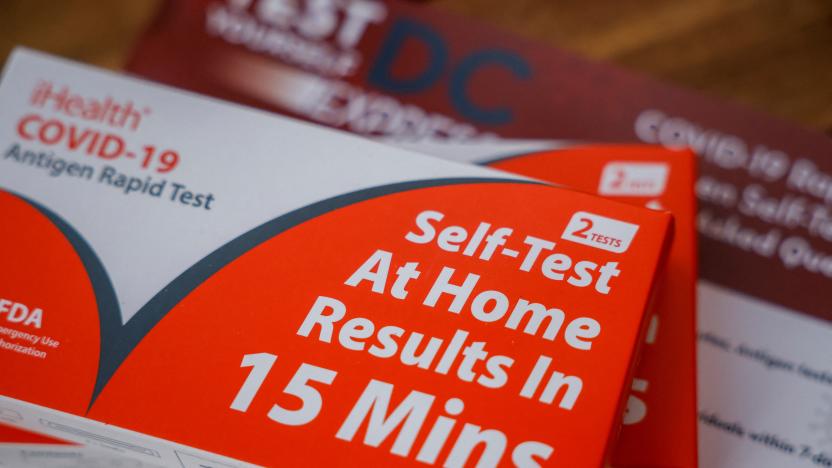
US brings back free at-home COVID-19 tests as cases continue to spike
Each household can request four tests starting September 25.
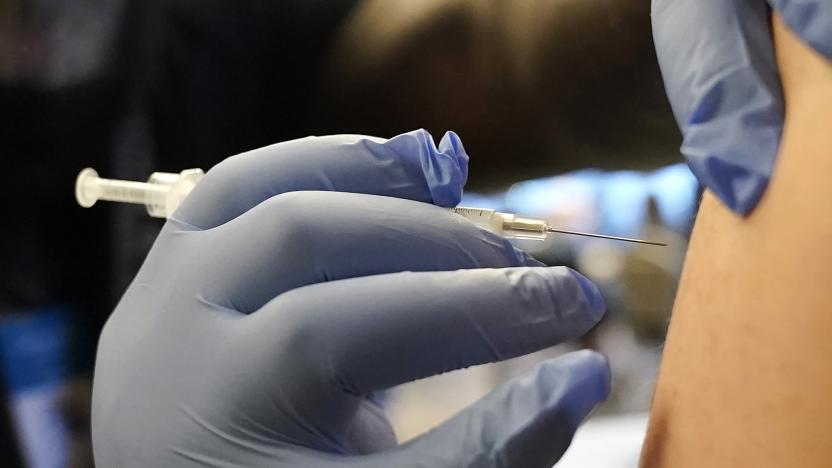
The new COVID-19 vaccines are here for the fall
A new lineup of COVID-19 vaccines are now available in the US. The CDC is urging most Americans to get an updated COVID-19 vaccine.

Apple Stores in the US will keep mask mandates in place, for now
Visiting an Apple Store in the US? For now, you'll still need to wear a mask.

FDA authorizes cheap rapid at-home COVID-19 tests
Cheap, rapid at-home COVID-19 tests will be available soon without a prescription.

Google will turn some of its offices into COVID-19 vaccination sites
Google will convert some of its facilities into COVID-19 vaccination sites starting in New York City, Los Angeles, the San Francisco Bay Area and Kirkland, Washington.
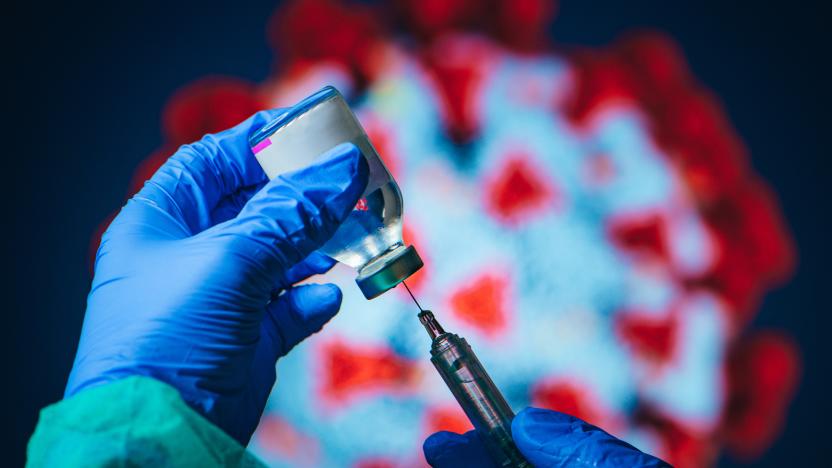
How the world went from no COVID vaccines to two in under a year
The next stage involves testing the vaccine on animals. By November, just four months after beginning phase III trials, the company demonstrated its vaccine to be 94 percent effective in preventing COVID infection.
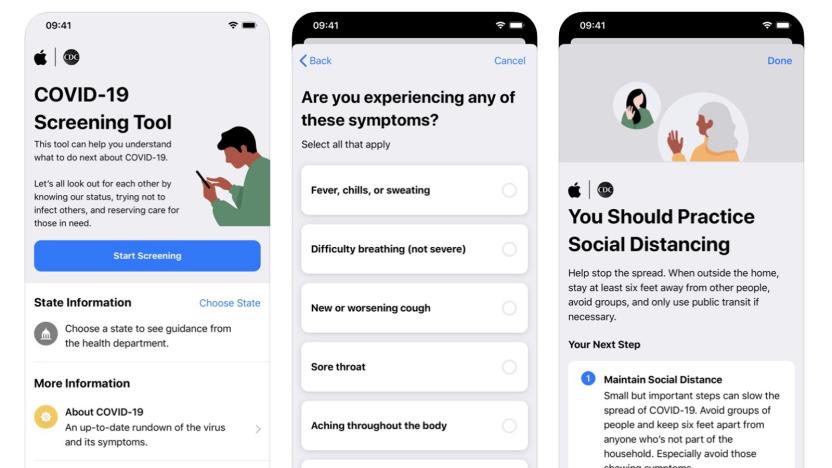
Apple's COVID-19 screening tool can anonymously share symptoms with the CDC
Apple's COVID-19 screening app and website now let you share anonymous symptom and health info to help the CDC.

US blames China for hacks allegedly targeting COVID-19 research
US officials are pinning a surge of hacks on a Chinese bid to steal COVID-19 treatment and vaccine research.

Apple helped Stanford create a COVID-19 screening app for first responders
With some help from Apple, Stanford Medicine has released an app that can connect first responders in California with COVID-19 testing.
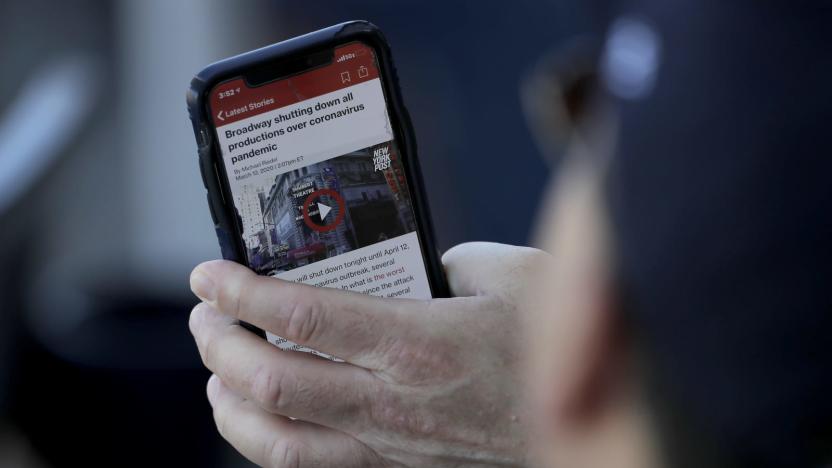
US officials use mobile ad location data to study how COVID-19 spreads
The use of phone location tracking to keep tabs on COVID-19 is becoming increasingly common, and the US appears to be no exception. Wall Street Journal sources say federal (via the CDC), state and local governments have been receiving location data from mobile ads to help plan their pandemic response. The anonymized info helps officials understand where people are still gathering in significant numbers (and thus risk spreading the coronavirus), how well they're honoring stay-at-home demands and how the virus has impacted retail.

Alexa can tell you what to do if you think you have COVID-19
Amazon is joining Alphabet's Verily and Apple's Siri in offering a COVID-19 screening tool. If you're in the US, you can now ask your Alexa devices to assess your risk level for the disease, as well as what to do if you think you have COVID-19. Alexa will ask you a series of questions and provide Centers for Disease Control (CDC) guidance based on your risk factors and symptoms.

Apple's Siri helps Americans wondering if they have COVID-19
It's not just Alphabet's Verily offering a COVID-19 screening tool. Apple has quietly updated Siri in the US to provide a questionnaire (using US Public Health Service and CDC data) when they ask if they have the coronavirus. The voice assistant will ask if you're exhibiting symptoms like a fever or respiratory problems, and advises you to avoid contact with others if you appear infected. Siri also urges you to call 911 if your symptoms are extreme, and will point you to the App Store to download telehealth apps for remote consultations.

Lasers and smart pills could eventually replace injections
While getting shots or blood work isn't anyone's idea of fun, roughly 10 to 20 percent of American adults suffer from trypanophobia, the extreme fear of hypodermic needles and injections. This phobia can prevent people from partaking in routine medical exams, receiving life-saving vaccines or even properly managing their blood-glucose levels (should they suffer from diabetes). However, a pair of novel injection systems offers the promise of putting those critical medicines into our bodies without ever breaking the skin.
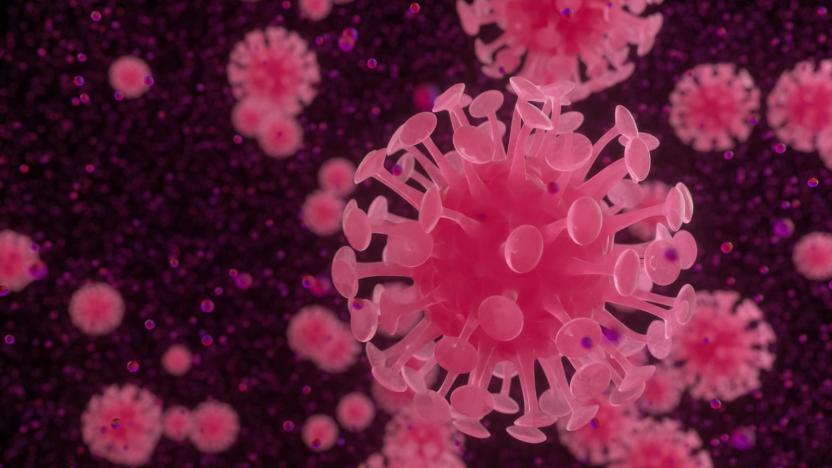
How AI is stopping the next great flu before it starts
Immune systems across the globe have been working overtime this winter as a devastating flu season has taken hold. More than 180,000 Americans have been hospitalized and 10,000 more have died in recent months, according to the CDC, while the coronavirus (now officially designated COVID-19) has spread across the globe at an alarming rate. Fears of a growing worldwide flu outbreak have even prompted the precautionary cancelling of MWC 2020 -- barely a week before it was slated to open in Barcelona. But in the near future, AI-augmented drug development could help produce vaccines and treatments fast enough to halt the spread of deadly viruses before they mutate into global pandemics.

CDC: Vitamin E acetate is 'closely associated’ with vaping lung injuries
For months, the CDC has warned people against vaping until it could determine the cause of a mysterious vaping-related lung injury. Now, the CDC confirms speculation that vitamin E acetate is "closely associated" with EVALI, or e-cigarette, or vaping, product use-associated lung injury.
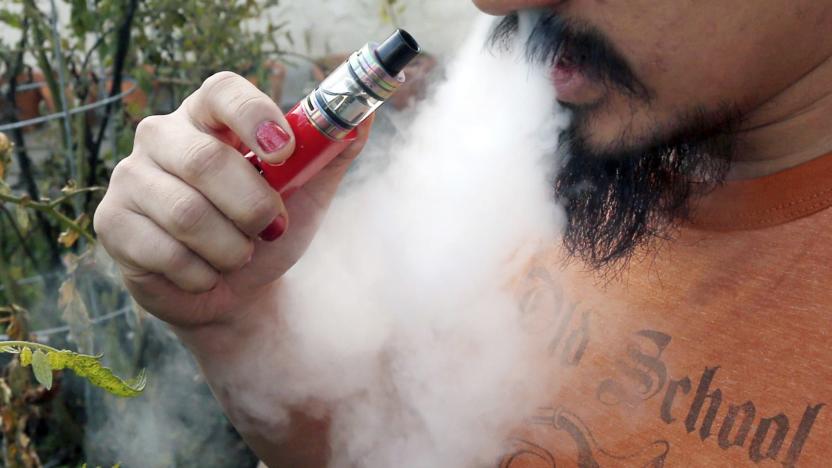
CDC says a toxic compound may be responsible for vaping illnesses
The Center for Disease Control is edging closer to an explanation for vaping-related lung illnesses. The agency has determined that vitamin E acetate, a compound present in all 29 lung tissue samples obtained from patients, is a "potential toxin of concern." The chemical is used to dilute liquid in e-cigarettes and vaping products that include THC, and is found in some food as well as cosmetic products like skin cream. It doesn't normally cause harm when swallowed or rubbed on your skin, but past research suggests that inhaling might impede lung functions.
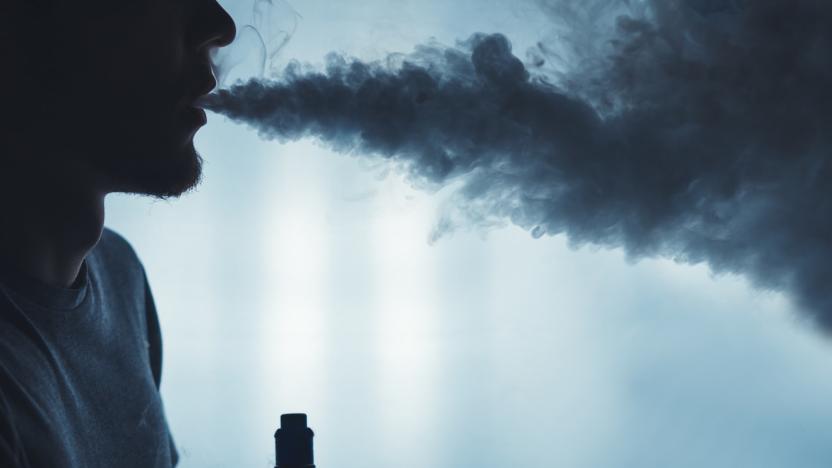
CDC confirms 2,051 cases of vaping-related lung injury
The number of vaping-related lung injuries is up to 2,051, the Center for Disease Control (CDC) said in a statement today. Health officials are now referring to the mystery illness as EVALI, short for e-cigarette, or vaping, product use associated lung injury. Cases of EVALI have been reported in 49 states (all but Alaska) and the District of Columbia, and a total of 39 deaths have been confirmed.
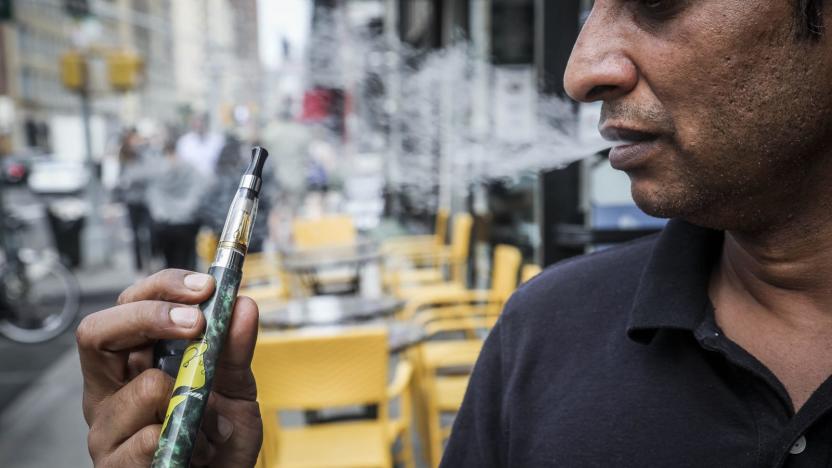
The FDA has opened a criminal investigation into vaping
The Food and Drug Administration opened a criminal investigation into the vaping supply chain earlier this summer, it has emerged. The Office of Criminal Investigations started the probe following reports of a vaping-related lung illness. The agency now says more than 530 people have been affected, and seven deaths have been attributed to the illness thus far.

CDC warns against vaping until it figures out what’s making people sick
Until the Center for Disease Control can figure out what's causing the mysterious lung illness associated with vaping, it's cautioning people against e-cigs. Last week, it launched a joint investigation with the Food and Drug Administration into a respiratory illness reported after vaping. At the time, it said 215 possible cases had been reported from 25 states, and at least two deaths have been documented. "While this investigation is ongoing, people should consider not using e-cigarette products," the CDC wrote in a press release today.

CDC identifies a death potentially linked to vaping
The US Centers for Disease Control and Prevention has revealed that it identified 193 cases of severe lung illnesses, which are potentially linked to vaping. Further, the patient in one of those cases -- involving patients aged 17 to 38 and recorded between June 28th and August 20th this year -- died in Illinois after being hospitalized. While one of the reasons people vape is to stop smoking, which is one of the leading causes of death in the world, we still don't have a full understanding of its long-term effects. That'll probably be a subject a lot of researchers would tackle going forward.









